- Home
- Steven Brust
Five Hundred Years After (Phoenix Guards) Page 28
Five Hundred Years After (Phoenix Guards) Read online
Page 28
We insist, then, that, the conventions of romances notwithstanding, we have related what actually occurred between Daro and Khaavren, and we have placed it in time and space as accurately as our meager talents permit. Furthermore, we believe the drama is stronger because it has the resonance of truth, rather than the artifice of fiction; yet the reader is, of course, free to draw his own conclusions about literature versus history, as about anything else we have discussed during the time when he has done us the honor to allow us to spend an evening with him.
With this understood, it is time to move on to the rest of the Palace, where events have not stood still while Khaavren and Daro discovered one another. On the contrary, the sudden and unexpected complication between Captain and Countess, though of great importance to this history (and, we dare to hope, to our readers), was so unimportant to the rest of the court as to pass entirely unremarked.
Lest the reader fear that, in following this “sudden and unexpected complication,” as we have called it, we have lost track of the others whose actions we are obliged to follow, let us declare that nothing could be further from the truth. And the proof, if more proof is needed than the summary provided near the end of the previous chapter, is that we are now prepared to look in on Sethra and Aliera, as they leave Jurabin’s council chamber.
“Well,” said Sethra. “So, it is true that it was Jurabin who has saved you from arrest.”
“There can be no further doubt on that score,” said Aliera. “He confessed it with every gesture, every glance—”
“Every glance, that is, at me,” said Sethra, smiling. “For, as you no doubt observed, he could not bring himself to look directly at your countenance.”
“Well,” said Aliera, shrugging, “there is some truth in what you say.”
“And yet, we are no closer than we were to knowing who is behind the assassinations—both failed and successful—that have broken out like a plague over this last week and more.”
“That is true,” said Aliera. “For, though he was confused, and could conceal nothing, he gave no indication of guilty knowledge on this subject.”
“And yet—” said Sethra.
“Yes?”
“There is one matter to which my mind keeps returning.”
“Well, if you will tell me what it is, my mind will turn to it as well, and your mind shall have company on its journey, which will, no doubt, be as pleasant for our minds as the company we keep on our journey along this corridor is pleasant to us.”
“You reason like an Athyra, my dear friend.”
“Well, go on.”
“This is it, then.”
“I am listening.”
“The way he spoke of the Consort. The quiver, if you will, in his voice, and the way his eyes shifted away from me.”
“Ah! I had not remarked this! What do you make of it?”
“That he knew something he would not tell us.”
“About the Consort?”
“Precisely.”
“There is gossip about the two of them.”
“That is certainly the case, my dear Aliera.”
“Then you suspect—?”
“That she is your enemy? Exactly.”
“And she has the ear of His Majesty.”
“And His Majesty has his Guards.”
“And the Captain of the Guards?” said Aliera.
“Khaavren,” said Sethra.
“Yes, Khaavren,” said Aliera. “The order for my arrest, as we determined before, must go through him. But would he warn us first, if he were told to arrest me?”
“As to that, I cannot say.”
“No,” said Aliera, “but I can.”
“Oh?”
“I need only a few words with him, and I will know if he has been given these orders.”
“Well?”
“Then let us find him, and at once.”
Sethra laughed. “How, you have not remarked the direction we are traveling? We are nearly to the Dragon Wing. Down these stairs, and we shall be at his offices.”
“Then lead on,” said Aliera. “And let us learn what we can from this Tiassa.”
All of this took place in the Dragon Wing of the Palace, beginning on an upper floor and winding down toward the Sub-wing of the Imperial Guard. Some distance away, near the Athyra Wing (although not, technically speaking, within it) another of our friends had reached her destination.
Tazendra, as we have already mentioned, had, after several hours of diligent searching, finally located the Institute of Discretion. She asked to see Pel. The door-ward denied knowing any such person and persisted in this denial until, fortunately, at least for the door-ward, Tazendra remembered to ask for him as the Duke of Galstan, after which the Duke was sent for. After an interval of a few minutes, he arrived.
Tazendra gave a cry upon seeing Pel, and embraced him with an exuberance that simultaneously raised the door-ward’s eyebrows and threatened the Yendi’s ribs. He nevertheless returned the embrace as well as he could before disengaging himself and paying Tazendra a thousand compliments.
“So,” he said at last, “you have been seeking me?”
“More than seeking you,” said Tazendra. “I have found you.”
“Well, you have,” said Pel. “And yet—”
“And yet?”
“Well, I wonder—”
“Ah! I recognize you so well in that!”
“Oh, to be sure.”
“But tell me what you wonder.”
“Oh, I am about to.”
“Begin then.”
“I wonder why you have been seeking me.”
“Why else, but to find you?”
“Yes, yes, I understand that, only—”
“Only you wish to know why I wanted to find you?”
“Yes, Tazendra. You have guessed it. I wish to know why you wanted to find me.”
“Oh, as to that—”
“Yes?”
“I will tell you.”
“And at once, I hope.”
“Why, this, this very instant.”
“Then I am listening.”
“I wished to find you because I wish to learn what you know.”
“You wish to learn what I know? But surely you must understand—”
“Ah, ah! You know that understanding is not something I do well.”
“Oh, but this is something you will understand.”
“I am skeptical.”
“I know you are, Tazendra, and I assure you that it is a mark of intelligence.”
“Do you think so?”
“I am convinced of it.”
“Well, what must I understand, then?”
“You must understand that the secrets of Discretion are not to be divulged to anyone who is not an initiate.”
“Oh, yes, I understand that.”
“Well, you perceive I was right.”
“Yes, yes. You are always right. Only—”
“Yes?”
“When I spoke of wanting to learn what you knew, I was not thinking about the secrets of Discretion.”
“But, my dear Tazendra, what else could I, locked away in this tower, know? I assure you, it has been my whole life. No, no, don’t answer yet. For I assure you that I desire nothing more than conversation with you, so let us find a place where we can sit comfortably while we speak. Here, turn this corner, and now this one, and so through this portal. Here, you perceive, is a room that is empty save for some chairs, and one that has, moreover, good, thick walls. Now, of what do you pretend I have knowledge?”
“Well, of the assassination attempt on Lord Adron.”
“Ah! I admit that I had some concerns on that score, but they seem to have been misplaced.”
“Not at all.”
“How, not at all? Was an attempt made?”
“Yes, only—”
“Well?”
Tazendra dropped her voice. “They made a mistake, and attempted to kill Khaavren instead.”
“How, Khaavren?” cried Pel, amazed.
“Yes. And they might have succeeded, except that, thanks to your warning, Aerich and I were there, and I was able to discharge a flashstone which, thanks to the Gods, did not miss its mark.”
“Your flashstones rarely miss their mark,” said Pel.
“You are kind to say so,” said Tazendra magnanimously.
“Yet,” said Pel slowly, “I cannot believe they would have made such a mistake.”
“Oh, they did, although, to be sure, neither Khaavren nor Aerich seem to think it was a mistake.”
“What do they think?”
“They think it was an attempt on Khaavren. But that would mean that you had erred in thinking that Adron was in danger, and I do not think—”
“When was an attempt made?”
“It was the evening of the riot. We had a hand in that, too, I should add. I mean, we helped to stop it; we did nothing to start it, I assure you.”
Pel seemed to be considering matters deeply. “You say an attempt was made on Khaavren?”
“No, no. On Adron. Only—”
“An attempt was made, was it not, Tazendra?”
“Yes.”
“And Khaavren was its intended victim?”
“Without question.”
“Then that is enough for now.”
Tazendra shrugged as if she, having done her best to open his eyes, would waste no more time pointing out the obvious. For his part, Pel did not seem distraught by this. He said, “Do you know who made the attempt?”
Tazendra frowned. “I must confess something,” said Tazendra.
“Well, as a Discreet, at least in training, there are few to whom you could more safely make a confession.”
“Listen, then.”
“I am listening.”
“I cannot remember what they said.”
“What, who said, my dear Tazendra?”
“Khaavren and Aerich. They spoke at some length about the assassin, as if they knew him. Yet all I can remember is that he was from the Underside. You remember the Underside, Pel? We went in there one day, the two of us, when there was a disturbance in a private home, where eight or nine rogues seemed determined to plunder it. When we arrived, they were holding the residents hostage, and we had to—”
“Yes, yes, I recall, but—”
“Ah, that was hot work, that night! Some steel sang, and some blood was let!”
“Yes, yes, Tazendra. It was a fine night. Only—”
“Do you recall, after we had rescued the victims, they gave me a pewter goblet, with a ruby on the base?”
“I had forgotten that circumstance.”
“I still have it, you know. I keep it on the mantel, near the dagger I broke when Khaavren and I were set upon by—”
“Your pardon, Tazendra my dear, but I must ask you this: you say Khaavren and Aerich knew the assassin?”
“No, no, Pel. They only seemed to. They spoke of his habits, and his House, and—”
“Well then, we need only ask Khaavren or Aerich who he is, and then we will know.”
“Well, that is true. But what then?”
“What then? Why then, we will see if this information will help us track down those who are attempting to kill Lord Adron.”
“Oh, I should love to get my hands on whoever hired the assassin!”
“Let us find Khaavren or Aerich, then, and perhaps you will get your wish.”
“An excellent plan, Pel. You always have good plans.”
Pel bowed to this compliment and said, “Where, then, is Aerich?”
“Do you mean, at this moment?”
“Yes, exactly. At this moment.”
“He is with Lord Adron, protecting him.”
“That is good. His Highness could not be in better hands.”
“That is my opinion,” said Tazendra.
“But what of Khaavren?”
“Oh, Khaavren would also protect His Highness, only he is not there.”
“Yes, but, where is he?”
“Where is he? Where else but here, in the Palace?”
“With His Majesty, do you think?”
“There, yes. There or elsewhere.”
Pel shrugged like Aerich. “In that case, let us go find him.”
“Yes, let’s. Only, I do not know this part of the Palace. I am not entirely sure how I got here, and I do not, therefore, know how to get back.”
“But I do,” said Pel.
“Well then, you lead.”
“I am doing so.”
And so, with this, Pel and Tazendra set off to find Khaavren. While they are thus engaged, we will take the opportunity to discover something of how His Majesty has been engaged.
The Emperor had been in jovial spirits for most of the day. He noticed the absence of his Captain, but assumed that Khaavren was involved, along with Sethra Lavode, in the investigations associated with the assassinations. His day went by as usual until, in the middle of the afternoon, he was interrupted by the Consort, who urgently requested a private audience with him, an audience he granted at once. They repaired, therefore, to the Seven Room, with Corporal Thack stationed outside of the door.
Need we dwell on the conversation? Can the reader not, from the information previously given and from his own imagination, supply the words, gestures, tears, and entreaties that fell, at first like flakes of snow, then like the floodwaters of the swollen Breaking River in spring, from Consort to Emperor, in an effort to see Aliera arrested and imprisoned? We can assure the reader that, for at least the first minutes of the conversation, there would be little deviation between the reader’s hypothesis and the actuality.
Eventually, however, His Majesty ventured to say, “Madam, you have my entire sympathy, and yet—”
“Yes? And yet?” said the Consort, looking at him with reddened eyes.
“Surely, you must understand, there are reasons of state that make her arrest—”
“Reasons of state?” she cried. For a moment, she seemed about to launch an assault on his premise—that is, that reasons of state could take precedence over her desires. But then she calmed herself and said, “Well, then, Sire, let us look at these reasons of state which are so important they permit a dangerous criminal to walk free, and to laugh at the laws of the Empire to which all save Your Majesty are bound.”
“Yes, yes,” said Tortaalik quickly, for he had cringed when he thought she was about to lose her temper, and was grateful that she was willing to discuss the matter rationally. “Yes, let us look at these reasons of state.”
“Well, what are they?”
“In the first place—”
“Yes, Sire, in the first place?”
“There is her father.”
“What about him?”
“What about him? Well, he is the Dragon Heir.”
“Very well, he is the Dragon Heir.”
“A proud, arrogant, and powerful man.”
“I dispute none of these things.”
“A man with considerable support among the Princes and Deputies who are gathering to determine the Imperial Tax.”
“I begin to see your argument, Sire.”
“Do you? Then I am gratified.”
“Well, Sire, go on.”
“Very well. We have the issue of the Imperial Tax, upon which depends the stability of the Empire, not to mention our comfort.”
“Yes, yes, I understand that.”
“So much, then, for the question of Adron.”
“Yes, I now comprehend the situation with Adron and the Imperial tax.”
“Next, there is the matter of Aliera’s friendship with Sethra Lavode.”
“What is this?”
“I am told that they have become fast friends. And, you perceive—”
“Fast friends? And yet, Sire, I am told that they have threatened to murder one another no less often than once each day since they have met.”
The Emperor shrugged. “Well? They are Dragonlords; wherefo
re does this means they are not friends?”
“Well, go on.”
“Yes. Well, it is clear that there is some sort of conspiracy at work, which has resulted in G’aereth’s murder, the assassination of Smaller, the—”
“Yes, Sire, there is a conspiracy.”
“Sethra is helping to investigate it. Should we offend Sethra—”
“Then she will no longer help in the investigation.”
“Exactly.”
“I understand, Sire.”
“Not to mention any other ways in which Sethra Lavode could exercise her influence to our detriment.”
“Well then, I understand the arguments about Adron and Sethra. What next?”
“Next, the people.”
“The people?”
“Exactly.”
“You perceive, Sire, that I fail to see what the people have to do with this.”
“Ah, then you have not been informed of Aliera’s influence among the people? How they formed an attachment to her after the incident of the bakery?”
“The incident of the bakery, Sire?”
“Yes, exactly.”
“But I know nothing of this incident.”
“Then I shall tell you of it.”
“Go on, then. I await you.”
“This is it: Two days ago she saw a crowd outside of a large bakery on the Street of Six Fences. She became curious, and attempted to discover the reason behind the gathering.”
“Well?”
“Well, the crowd had become angry because the baker had raised the price for bread, pretending that the new tax imposed on wheat entering the city had raised his costs. The crowd was debating breaking down the doors of the bakery and taking the bread.”
The Consort frowned. “Were they serious about this, Sire?”
“As I am informed, madam, the only remaining question was whether, after taking the bread, they should hang the baker, or merely let him go with a beating.”
“Rabble!” cried the Consort. “That an honest merchant should be treated so! Where were the Guard?”
“They had been sent for, but they were, as yet, some distance away.”
“What happened, Sire?”
“You wish to know what happened, madam?”
“The Gods! It is an hour since I asked anything else!”
“Aliera, upon hearing the story, approached the baker and purchased his business.”

 Phoenix
Phoenix Tiassa
Tiassa The Lord of Castle Black
The Lord of Castle Black To Reign in Hell: A Novel
To Reign in Hell: A Novel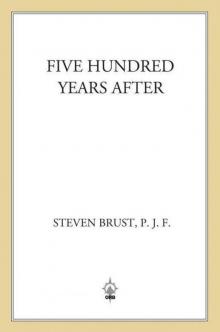 Five Hundred Years After (Phoenix Guards)
Five Hundred Years After (Phoenix Guards)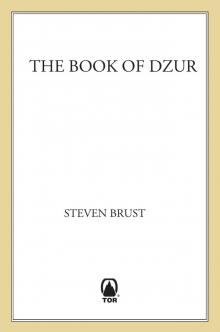 The Book of Dzur: Dzur ; Jhegaala
The Book of Dzur: Dzur ; Jhegaala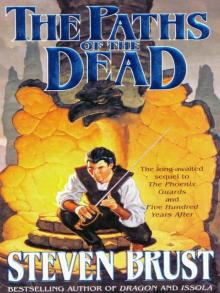 The Paths of the Dead
The Paths of the Dead Jhegaala
Jhegaala The Desecrator: A Tor.com Original
The Desecrator: A Tor.com Original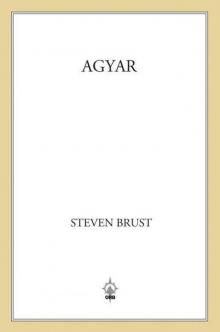 Agyar
Agyar Fireworks in the Rain
Fireworks in the Rain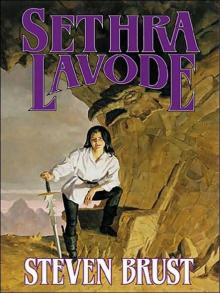 Sethra Lavode
Sethra Lavode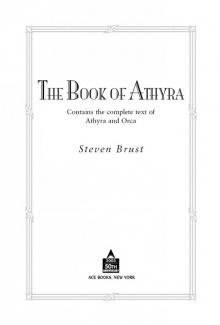 The Book of Athyra
The Book of Athyra Yendi
Yendi Good Guys
Good Guys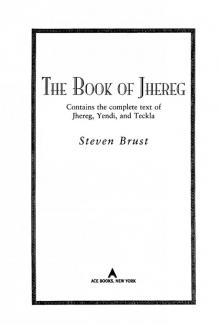 The Book of Jhereg
The Book of Jhereg Cowboy Feng's Space Bar and Grille
Cowboy Feng's Space Bar and Grille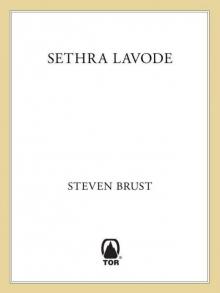 Sethra Lavode (Viscount of Adrilankha)
Sethra Lavode (Viscount of Adrilankha) My Own Kind of Freedom
My Own Kind of Freedom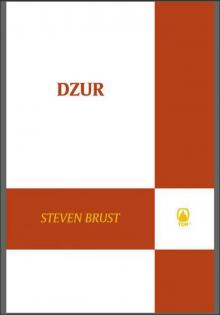 Dzur (Vlad Taltos)
Dzur (Vlad Taltos) The Lord of Castle Black: Book Two of the Viscount of Adrilankha
The Lord of Castle Black: Book Two of the Viscount of Adrilankha Fireworks in the Rain: A Tor.Com Original
Fireworks in the Rain: A Tor.Com Original To Reign In Hell
To Reign In Hell Issola
Issola Orca
Orca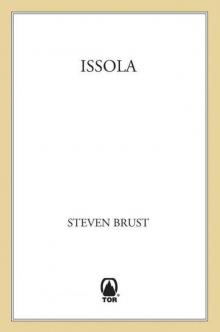 Issola (Vlad Taltos)
Issola (Vlad Taltos)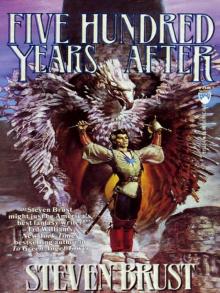 Five Hundred Years After
Five Hundred Years After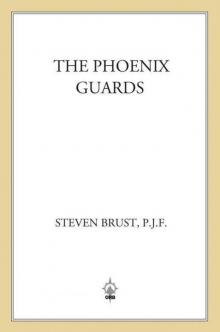 The Phoenix Guards
The Phoenix Guards Taltos
Taltos![[Vlad Taltos 06] Athyra Read online](http://i1.bookreadfree.com/i1/03/24/[vlad_taltos_06]_athyra_preview.jpg) [Vlad Taltos 06] Athyra
[Vlad Taltos 06] Athyra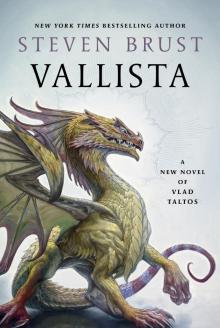 Vallista--A Novel of Vlad Taltos
Vallista--A Novel of Vlad Taltos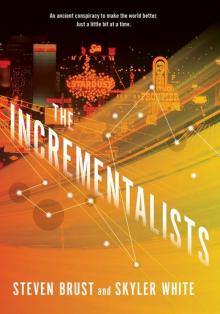 The Incrementalists
The Incrementalists![[Vlad Taltos 04] Taltos Read online](http://i1.bookreadfree.com/i/03/24/[vlad_taltos_04]_taltos_preview.jpg) [Vlad Taltos 04] Taltos
[Vlad Taltos 04] Taltos![[Vlad Taltos 03] Teckla (v 1.1) Read online](http://i1.bookreadfree.com/i1/03/27/[vlad_taltos_03]_teckla_v_1_1_preview.jpg) [Vlad Taltos 03] Teckla (v 1.1)
[Vlad Taltos 03] Teckla (v 1.1)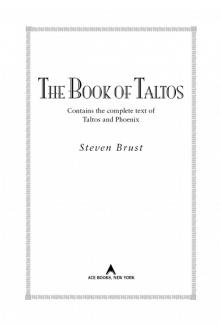 The Book of Taltos
The Book of Taltos The Paths of the Dead (Viscount of Adrilankha)
The Paths of the Dead (Viscount of Adrilankha) Jhegaala (Vlad Taltos)
Jhegaala (Vlad Taltos)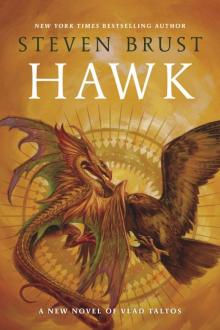 Hawk (Vlad)
Hawk (Vlad)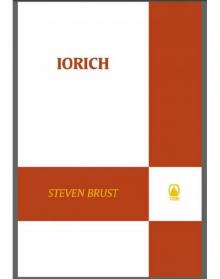 Iorich
Iorich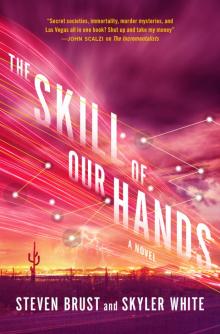 The Skill of Our Hands--A Novel
The Skill of Our Hands--A Novel Brokedown Palace
Brokedown Palace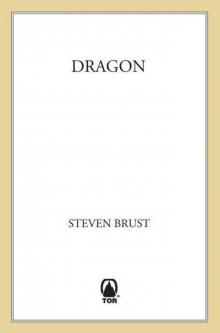 Dragon (Vlad Taltos)
Dragon (Vlad Taltos) Dragon
Dragon Athyra
Athyra Teckla
Teckla Dzur
Dzur